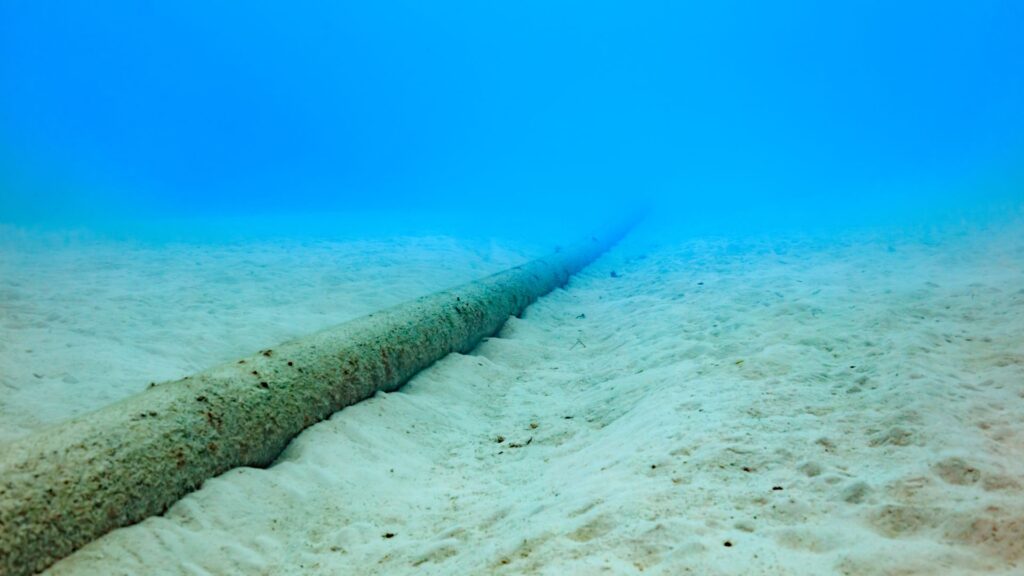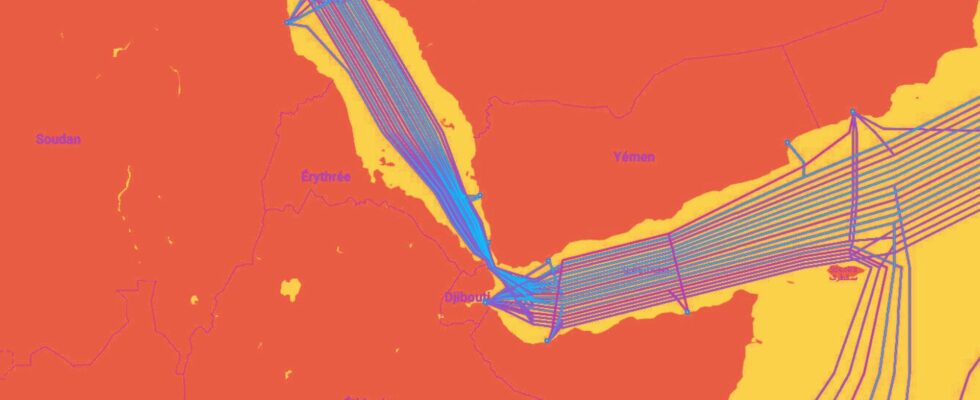The rupture of submarine cables off the coast of Yemen remains shrouded in mystery. Operators have taken measures to divert traffic to other routes. Suspicions lie with the Houthi rebel movement, but the hypothesis of a trivial accident cannot be ruled out.
What happened off the coast of Yemen? The question still remains without a clear answer, while submarine cables passing through the Red Sea have been cut. Two scenarios stand out: that of the accident, with an anchor inadvertently severing these installations, or that of sabotage, with strong suspicion towards the Houthis.
What is certain is that communications via this route are affected. Hong Kong operator HGC Global Communications made a statement on March 4 to estimate the proportion of traffic affected in the area at 25%. Four cables were damaged out of the fifteen passing in the area. Traffic redirection has been implemented.
Concerning this Internet service provider, communications rely on the dozen cables still operational, but also by links which cross Eurasia and others which pass towards the United States, crossing the Pacific Oceans and Atlantic, over tens of thousands of kilometers each time.

The managers of these cables, such as Seacom and Tata Communications, have also indicated that technical arrangements had been made to find alternative routes. Tests carried out on this infrastructure have confirmed that the weakened segments are located south of the Red Sea, in an area under Yemeni jurisdiction.
The destruction of the cables quickly led to questions about the role of the Houthis, to the extent that clues and accusations pointed to their role. The Yemeni government said the rebels had planned to attack these facilities. An image showing the passage of cables appeared on a Telegram channel linked to them.
The Houthis claimed to have nothing to do with this damage. They questioned the responsibility of Western forces, in particular the USA and the United Kingdom, whose armies are very present in the region. But, as Time points out, they have provided no evidence and have produced false statements in the past.
Houthis go on the offensive
The incident occurred as the Houthis, who control a significant portion of Yemen’s territory, began disrupting maritime activities in the Red Sea. This rebel movement, supported by Iran, also attacked Israel because of the war launched at the beginning of October against Hamas, after its terrorist attack.
The Houthis attempted to launch missiles and drones into Israel, in support of the Palestinians. They also carried out similar attacks on ships in the surrounding area. Some were affected, others were not. Retaliations and military interceptions took place, including from American, British and French frigates.
The Pentagon, present in the region, is following the affair, as evidenced by the press briefing on March 5. The spokesperson for the American army confirmed that Washington is following the matter, without however commenting on the causes of these ruptures. It was not specified when the cables could be repaired, due to current risks in the area.
Do you want to know everything about the mobility of tomorrow, from electric cars to e-bikes? Subscribe now to our Watt Else newsletter!
